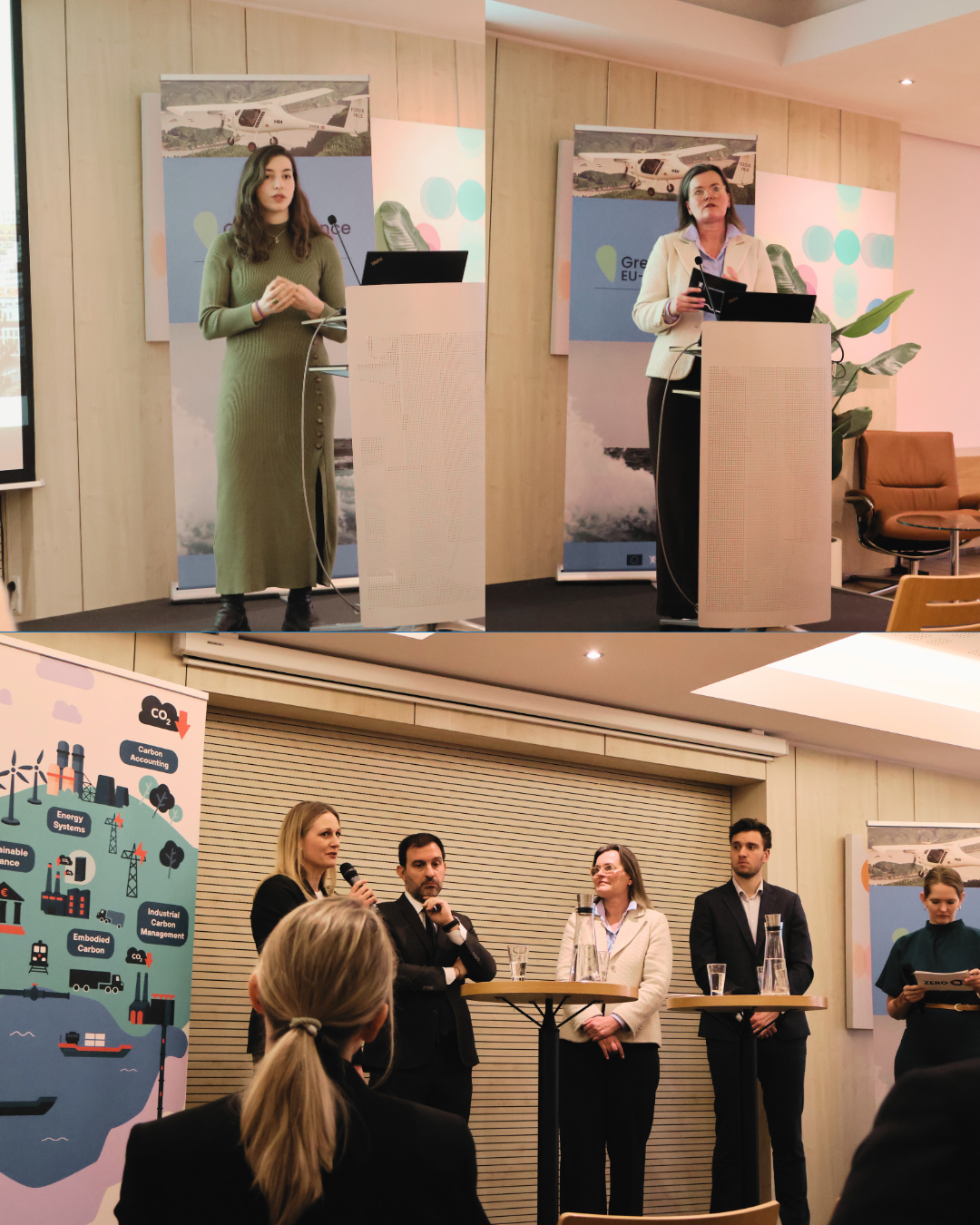
Joint letter – ICC reform and expansion risks diverting ETS Revenues from real climate action
In light of the European Commission’s ongoing considerations to amend the ETS State Aid Guidelines, revising the rules for Indirec...
News

Publish date: February 20, 2024
News
Tuesday, February 20th, 2024 | Brussels, Belgium –Today, the European Parliament, European Council and European Commission came to a preliminary agreement on the Certification Framework for Carbon Removals, proposed in November 2022. The agreement is a substantial improvement to the Commission’s original proposal, but fails to incorporate key guardrails on how future certificates issued by the framework will be used, or more importantly, how they will not be used. This leaves many unanswered questions which will need clarification in the coming months and years.
The framework establishes four different types of activities to be covered by the framework, from emission reductions in soils, to temporary carbon storage in carbon farming and in products, and permanent carbon removals. Vitally, these units will be distinct from each other, however, it remains unclear how the units will be used differently. This is a first missed opportunity to further disentangle the complexity which will necessarily emerge from trying to regulate very different activities under the same framework.
It is significant that some of the activities covered by the framework are explicitly labelled as being temporary in nature, with a duration of only five years for carbon farming activities, although this raises further questions as to how these units may be credibly used in practice. It is also worth noting that marine environments are explicitly included in the scope of the framework, in spite of the immense complexity of quantifying the climate benefit of marine-based activities.
«It remains to be seen how different activities with such different characteristics and storage uncertainty can be managed under the same framework. We can’t compare soils to rocks. »

Dr. Allanah Paul
CDR Research & Technology Advisor
Bellona has long called for a robust definition of Carbon Dioxide Removal to be included in EU legislation. The Certification Framework establishes a first definition for carbon removal in EU policy and effectively ensures that only the permanent storage of atmospheric or biogenic CO2 can qualify as a permanent carbon removal activity. On the other hand, it is unclear if all emissions associated with the activities will be included in the quantification of units, potentially overestimating the net climate benefit of each unit generated by the framework.
Fundamentally, the Certification Framework is geared towards the generation of individual quantified units, with the expectation that they may be used for offsetting. Yet, an offsetting-based model is unlikely to generate a physically and socially credible outcome, even with the guardrails introduced in the agreement. The explicit references to the Green Claims Directive and Corporate Social Responsibility Directives are welcome additions to the text, as is the requirement that units generated must be used for the EU’s NDC, rather than 3rd parties or international schemes such as CORSIA. Nonetheless, the framework should have been explicitly directed towards financing models other than conventional offsetting, but falls short of doing so.
The Certification Framework expects to rely on the Commission’s Expert Group on Carbon Removals, of which Bellona is a member, to provide input to the methodologies which will be developed. While the agreement establishes initial guidelines on the content of these methodologies, it does little more than this. Meanwhile, it is questionable if the Expert Group will be able to provide the necessary scrutiny to these methodologies, given the dearth of independent and academic representation in the group.
«The anti-greenwashing tool promised by the Certification Framework has yet to materialise, more work will be needed in the coming months and years.»

Mark Preston Aragonès
Head of Carbon Accounting
Context:
In November 2022, the European Commission proposed a Certification Framework for Carbon Removals. This proposal sought to develop a framework for the development of methodologies which can quantify the climate benefit of various types of activities, with a focus on carbon dioxide removal. Carbon dioxide removal is necessary to counterbalance residual emissions and achieve net-zero emissions. However, the ability to monitor, report and verify how much CO2 is being removed by such activities is currently lacking and there is a risk of overestimating their climate benefit.
As part of the ordinary co-legislative process, trilateral institutional negotiations (‘trilogues’) between the co-legislators and the European Commission have concluded with a preliminary agreement. This agreement will now need to be approved by both the European Parliament and the European Council before being formally adopted by the EU.
Further Information:
https://bellona.org/publication/policy-brief-the-crcf-is-not-yet-fit-for-purpose
https://bellona.org/publication/eu-must-lead-on-robust-and-coherent-terminology-for-carbon-dioxide-removal
https://bellona.org/publication/addressing-differences-in-permanence-of-carbon-dioxide-removal
https://bellona.org/publication/the-carbon-credits-conundrum-why-governments-need-to-regulate-voluntary-markets

In light of the European Commission’s ongoing considerations to amend the ETS State Aid Guidelines, revising the rules for Indirec...

Three main asks: Set robust low-carbon definitions as soon as possible: Without clear thresholds, non-price criteria in procurement lack the dec...

On 24 February 2025, Bellona Europa co-hosted a breakfast seminar at Norway House in Brussels alongside ZERO and the Mission of Norway to the EU, bringing together policymakers, manufacturers, and procurement practitioners around a single conviction: European cities hold a decisive and largely untapped lever for decarbonising construction. With the revision of the EU Public Procurement Directives on the horizon, the moment to use it is now.

Opening remarks and future of EU CRCF Market Christian Holzleitner, Head of Unit for Land Economy and Carbon Removals&nb...

Together with six NGOs and five industry partners, Bellona Europa signed a joint letter on the RFNBO Delegated Act, reiterating that now is not the t...
Get our latest news